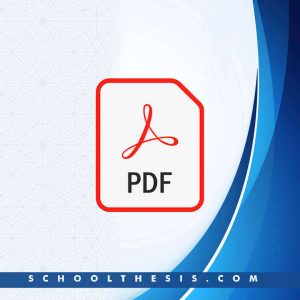Auditor’s Legal Responsibility and Its Effect on Accounting Profession

Auditor’s Legal Responsibility and Its Effect on Accounting Profession
Quick Navigation for Final Year Undergraduates, Masters (Thesis), and Ph.D. Dissertation Students Who Need Our Services on Their Research Works
| Find More Project Topics | FIND HERE |
| Hire Us for Thesis Works | HIRE NOW |
| Hire Us for Project Works | HIRE NOW |
| Hire Us for Seminar Works | HIRE NOW |
| Hire Us for Assignments | HIRE NOW |
| Hire Us for Proposals | HIRE NOW |
| Contact Us | HERE NOW |
Abstract on Auditor’s Legal Responsibility and Its Effect on Accounting Profession
Auditing is a systematic examination of books, accounts, documents and vouchers of an organization to ascertain how far the financial statements present a true and fair view of the concern. It also ensures that the books of accounts are properly maintained by the concern as required by law. Auditing is defined as a systematic and independent examination of data, statements, records, operations and performances (financial or otherwise) of an enterprise for a stated purpose. In any auditing the auditor perceives and recognizes the propositions before him/her for examination, collects evidence, evaluates the same and on this basis formulates his/her judgment which is communicated through his/her audit report [www.wikipedia.org]. Auditors’ auditing of a financial record provides third party assurance to various stakeholders that the subject matter is free from material misstatement. The term is most frequently applied to audits of the financial information relating to a legal person. Other areas which are commonly audited include: internal controls, quality management, project management, water management, and energy conservation. As a result of an audit, stakeholders may effectively evaluate and improve the effectiveness of risk management, control, and the governance process over the subject manner. That an auditor has the responsibility for the prevention, detection and reporting of fraud, other illegal acts and errors is one of the most controversial issues in auditing, and has been one of the most frequently debated areas amongst auditors, politicians, media, regulators and the public (Gay et al, 2013). This debate has been especially highlighted by the collapse of both small and big corporations across the globe. The auditing profession in Nigeria has caught the media’s attention following financial scandals in some of the Nigerian banks such as Intercontinental Bank, Oceanic Bank, Afribank, and Bank PHB among others.
Disclaimer
This research material is intended for academic use only and should be used as a guide in constructing your research project and seminar presentation. You should never duplicate the content word for word (verbatim), as SCHOOLTHESIS.COM will not be held liable for anyone who does.
The purpose of publishing this material is to alleviate the stress of hopping from one school library to the next in search of research materials. This service is lawful because all educational institutions allow students to read past projects, papers, books, and articles while working on their own.
SCHOOL THESIS is merely giving this information as a research reference. Use the document as a reference or structure for your own research paper. This paper’s content should be able to assist you in coming up with new ideas and thoughts for your own study
Auditor’s Legal Responsibility and Its Effect on Accounting Profession research paper, should only be used as a guide.
